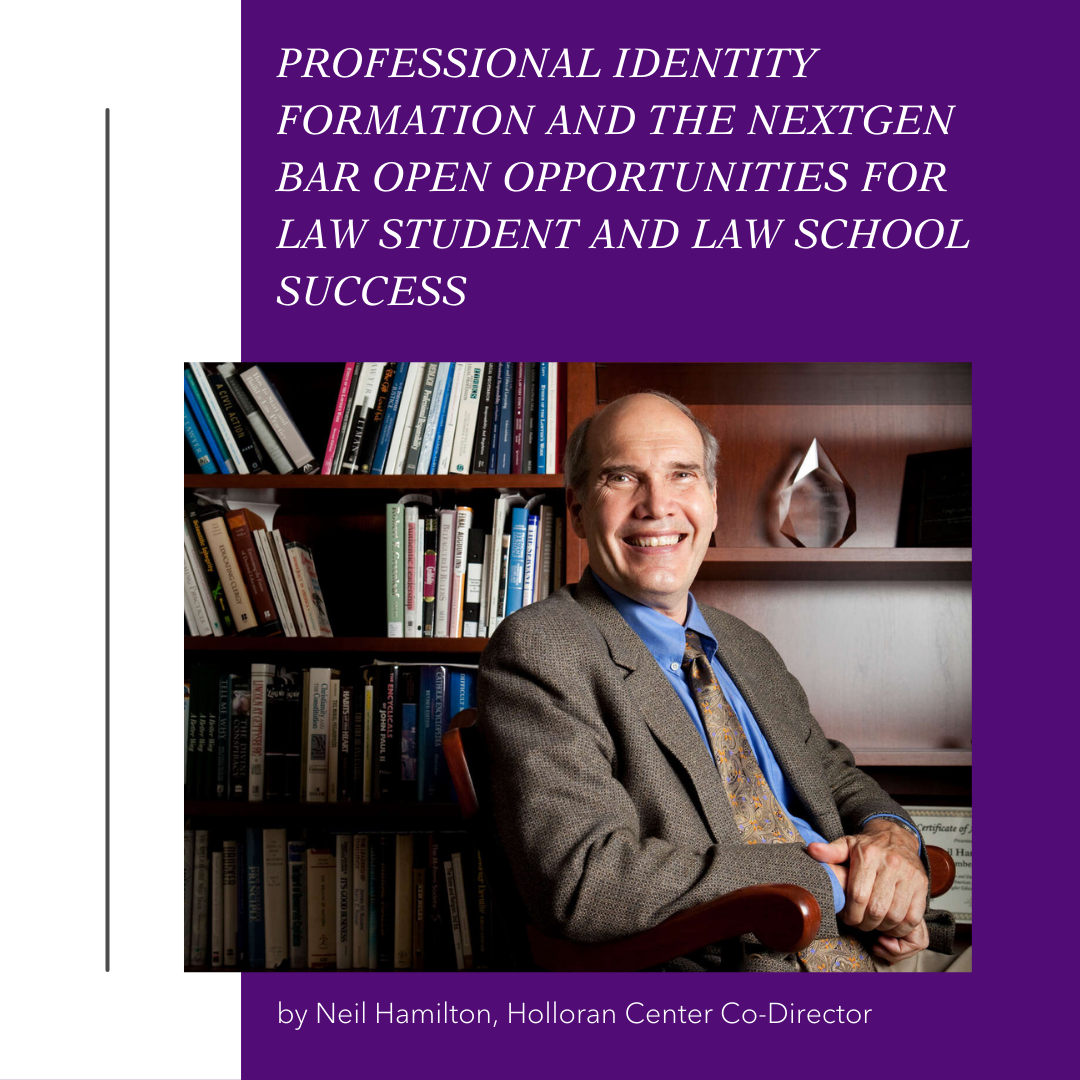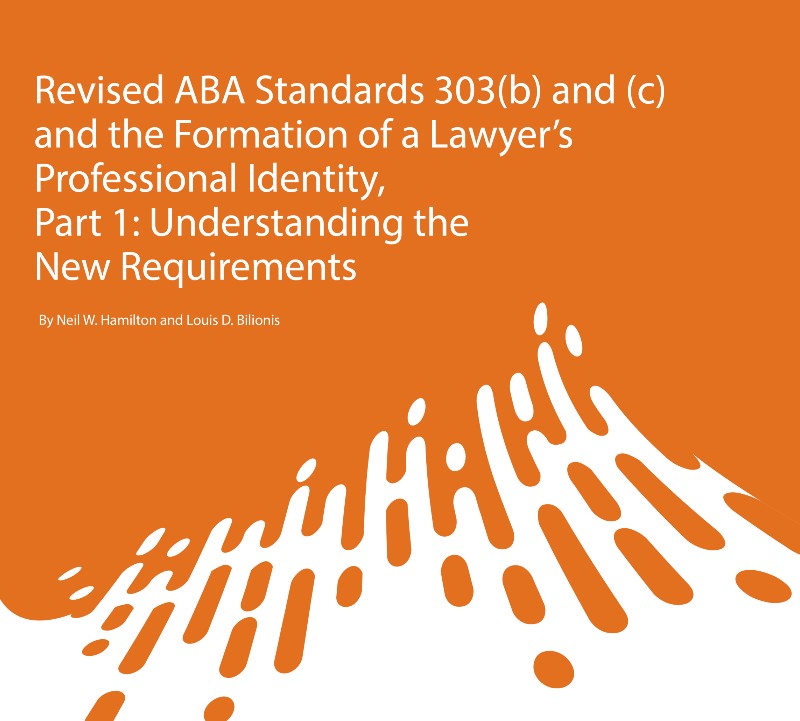By: David A. Grenardo, Professor of Law & Associate Director of the Holloran Center for Ethical Leadership in the Professions, University of St. Thomas School of Law
Neil Hamilton, Co-Director of the Holloran Center for Ethical Leadership in the Professions at the University of St. Thomas School of Law (MN), has just published on SSRN another groundbreaking article on professional identity formation (PIF). As will be shown in a forthcoming blog post, Neil Hamilton is currently the most-cited author of PIF articles. In his latest article, he makes connections as no one else has between PIF and the NextGen Bar Exam.
Here is a link to Hamilton’s article: http://ssrn.com/abstract=5023491.
And here is the abstract:
All law faculty, staff, and students want students and graduates to be successful with respect to: (1) academic performance; (2) bar passage; (3) meaningful post-graduation employment; and (4) excellent service to clients and the legal system. Both the 2022 changes to ABA accreditation Standard 303 and the ongoing implementation of the NextGen Bar starting in five states in 2026 and ten more states in 2027 offer substantial opportunities for law students and law schools to achieve more success at these four goals.
The 2022 revision to accreditation Standard 303 requires that each law school must provide substantial opportunities each year for students to explore the core values of the profession that are foundational to successful legal practice. The National Conference of Bar Examiners and many state supreme courts, based on empirical evidence, are now moving to the NextGen Bar that encompasses a broader range of skills necessary for newly licensed lawyers successfully to practice law than the current bar examination.
These two changes are asking law faculty and staff to think about legal education in two fundamentally different ways to help students achieve greater success at the four goals above. The first fundamental change is that the organized bar through accreditation and the state supreme courts through the bar examination are signaling that law schools must give more attention to each student’s:
- reflective exploration of the professional values foundational to successful legal practice; and
- development of a wider range of foundational lawyering skills that a newly licensed lawyer (NLL) needs to practice law competently beyond knowledge of the foundational concepts of doctrinal law, issue spotting, legal analysis and reasoning (thinking like a lawyer), and legal research and writing. The NextGen Bar is adding four new foundational skills to be tested including Client Counseling and Advising, Client Relationship and Management, Negotiation and Dispute Resolution, and Investigation and Analysis.
The second fundamental change, as explained later in this article, is that an effective curriculum to foster each student’s growth toward later stages of development regarding both the reflective exploration of professional values foundational to successful law practice and the four new NextGen Bar foundational skills build is different from the traditional thinking like a lawyer curriculum that emphasizes doctrinal law transmission, issue spotting, legal analysis, and legal research and writing. This article argues: (1) the core values foundationally inform the developments of the four new NextGen foundational skills; and (2) a student’s exploration and internalization of the profession’s core values and a student’s development of the NextGen Bar’s four new foundational skills will happen together in authentic professional experiences (that are or that mimic actual professional work) combined with coaching, feedback, guided reflection, and an action plan for a student to go to the next level on a skill.
The thesis of this article is that a law school that seizes the opportunity more effectively to foster (1) each student’s growth toward later stages of development on the core values of the profession, (2) each student’s understanding of how these core values are foundational for the skills of successful legal practice, and (3) each student’s development toward competence and excellence at the additional foundational skills the NextGen Bar is adding will see greater student and graduate success on all four goals in the first paragraph above. This helps both the students and the law school.



